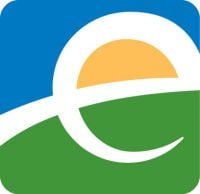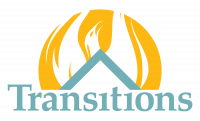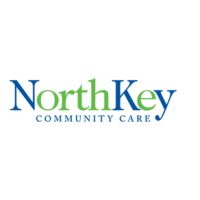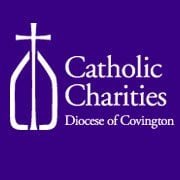Alcohol Services
Drug Rehab Center in Florence, Kentucky
- Substance Abuse
- Opioid Addiction
- Dual Diagnosis
- Drug Addiction
- Alcoholism
Alcohol Services in Florence, Kentucky provides comprehensive alcohol and substance abuse treatment including inpatient and outpatient treatment, detoxification, therapeutic programs, and aftercare planning.
About Alcohol Services in Kentucky
Alcohol Services in Florence, Kentucky provides comprehensive alcohol and substance abuse treatment. Established in 1998, Alcohol Services offers comprehensive services to individuals in the Greater Cincinnati region, including inpatient and outpatient treatment, detoxification, and a variety of therapeutic programs. The facility has a 24-hour crisis hotline, as well as a wide array of recovery and prevention services, such as relapse prevention, family therapy, and individualized counseling.
Alcohol Services provides a wide range of services, including medication assisted treatment, cognitive behavioral therapy, and social work services. Treatment is individualized, tailored to the unique needs of each person, and there are also group therapy sessions, educational classes, and support groups available. The facility also offers residential and long-term care, as well as aftercare planning, which aids in the transition from treatment to a life of sobriety.
Alcohol Services is accredited by the Commission on Accreditation of Rehabilitation Facilities, and is certified by the Substance Abuse and Mental Health Services Administration. The facility has also been recognized by the National Committee for Quality Assurance for its excellence in the delivery of addiction treatment services. Alcohol Services also offers a variety of evidence-based therapies, and participates in the National Drug Court Model Projects program.
Genders
Ages
Modality
Additional
Conditions and Issues Treated
It’s not easy getting sober on one’s own, or even going to rehab and escaping the grasp of addiction by oneself. Substance abuse treatment gives addicts a place to stay sober while learning what it takes to quit for good. They will learn from others about what works and what doesn’t work with remaining drug-free.
Treatment centers such as Alcohol Services focus on the needs of individual addicts to heal them. There is a combination of physical and mental therapies that treat the root cause of the addiction, whether it be family problems, stress, or past traumatic events.
The final benefit of substance abuse treatment is introducing new people who can help in your recovery after you leave Alcohol Services. Through group therapy sessions with other addicts and attending support meetings once a day, a person will learn how to interact with others and cope with cravings. This is a chance for you to rebuild your social circle healthily after you leave treatment.
Opioid addiction starts when a person becomes addicted to legal or illegal opioids. The addiction can happen quickly, in just a matter of days. Opioid withdrawal can be extremely uncomfortable and lead the user to continue to use even if they want to quit. Stopping using an opioid requires medical observation. Sometimes inpatient treatment with a medically supervised detox is necessary for managing the withdrawal process while learning lasting tools for maintaining recovery. Medications may be used in some cases of opioid addiction.
Opioid addiction is one of Kentucky‘s most prominent forms of addiction. It’s treated by detoxifying the body so that the chemicals from the medications no longer impact them and by therapies to correct behavior and target the root of the problem.
Recovery is not simply about stopping drug use. Recovery is working with addiction while recovering mental health issues that are fueling the addiction in the first place.
Levels of Care Offered
This center offers a variety of custom treatment tailored to individual recovery. Currently available are Drug Rehab, Dual-Diagnosis, Outpatient, with additional therapies available as listed below.
Outpatient treatment is considered the lower intensity level of addiction treatment. It’s ideal for early phase addiction or lower intensity addictions. It may include weekly sessions instead of daily. It may include weekly sessions instead of daily. Peer group support, 12-step programs, and individual counseling may still be involved but at a lesser frequency than an intensive outpatient program. It is a good choice for someone who doesn’t need to go through a medically supervised detox and who has a supportive home environment. It requires motivation and dedication to commit to the program without constant monitoring.
Therapies & Programs
Family therapy is a group problem-solving that aims to improve communication and relationships between the addict, their family, and sometimes friends. The main goal of family therapy for drug addiction is to create an environment where communication can occur without judgment, hostility, or blame. The therapist is with the family as they learn to communicate differently, especially with the addict when s/he is using. The family can learn to reduce their enabling behavior or rally together and support each other during tough times.
An addict’s family can play a vital part in helping them to avoid relapse because they can spot the warning signs and help them get back on track before it becomes too much of a problem. Family therapy is one of the most effective ways to help addicts stay on the path to long-term sobriety. When a drug addict decides that they want to try and get sober, it takes the support of every person they love to succeed. It can be incredibly difficult for loved ones to watch an addict go through the pain and suffering of withdrawal, but by being there with them and supporting them, they can help to make sure that the addiction never returns.
Groups typically involve meetings with other recovering addicts who can relate to one another’s experiences. They might meet in person or online and typically focus on the process of staying sober rather than overcoming a specific addiction.
In these groups managed by Alcohol Services, addicts can build a sense of community and develop strong emotional connections with others who understand what they are going through. These beneficial relationships can help addicts overcome their cravings and prevent relapse at any point during the recovery process.
In general, trauma therapy is a clinical process that helps individuals deal with mental stress often caused by traumatic events. The therapist helps the person identify, understand, and work through the problem. This is done with the help of talking about it in group or one-on-one counseling sessions. Therapists use relaxation, role-playing, art, and music to help the person open up about what is bothering them.
There are many different types of trauma therapists, such as psychiatric nurses and counselors. Not everyone is a good candidate for this type of therapy; it is generally reserved for people who have recently experienced a traumatic event and struggle to get over it. It is often done for children, teenage victims of sexual assault, and war veterans.
Payment Options Accepted
For specific insurance or payment methods please contact us.
Additional Details
Specifics, location, and helpful extra information.
Florence, Kentucky 41042 Phone Number(859) 967-4357 Meta DetailsUpdated November 25, 2023
Staff Verified
Alcohol Services Patient Reviews
There are no reviews yet. Be the first one to write one.
Florence, Kentucky Addiction Information
Kentucky ranks among the top ten states for opioid-related overdoses. Most of these are due to heroin, fentanyl, and prescription opioid use. A little over 11% of the Kentucky population abuses alcohol in a given year. More than 15% of Kentucky adults admit to participating in binge drinking every month.
2 out of every 15 teenagers in Florence are struggling with alcoholism. 8% of residents are addicted to at least one substance, including alcohol and weed. About 300 people in the region inject drugs like heroin and meth on a regular basis. 100 people die annually from a drug overdose in the area. Drug treatment centers in Florence offer specialized procedures to help people overcome their addiction to drugs and alcohol.
Treatment in Nearby Cities
- Madisonville, KY (193.4 mi.)
- Flemingsburg, KY (62.1 mi.)
- Fulton, KY (288.5 mi.)
- Bowling Green, KY (172.0 mi.)
- Louisa, KY (125.1 mi.)
Centers near Alcohol Services




The facility name, logo and brand are the property and registered trademarks of Alcohol Services, and are being used for identification and informational purposes only. Use of these names, logos and brands shall not imply endorsement. RehabNow.org is not affiliated with or sponsored by Alcohol Services.


